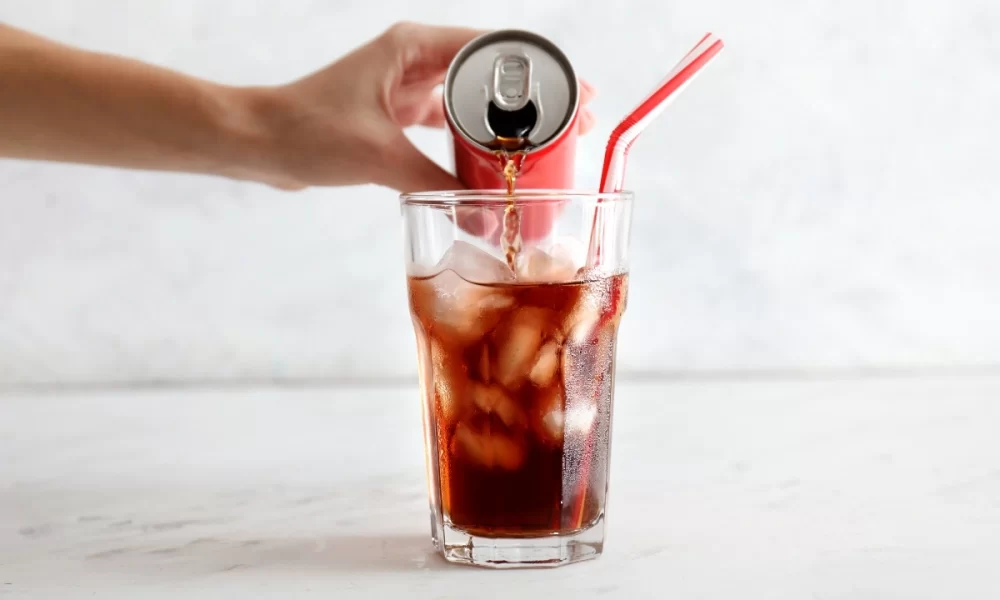Business
Canada cracking down on words ‘soda’ and ‘cola’ on cannabis labels

Health Canada is asking federally licensed cannabis producers to stop using certain words on labels and in promotions for infused beverages, warning they could appeal to young people.
The words – “soda,” “cola,” “root beer” or “ginger ale” – do not comply with Canada’s strict labeling and promotions requirements for cannabis, according to an email obtained by MJBizDaily that was sent by Health Canada to companies producing the affected products.
Health Canada is requesting businesses to “cease all non-compliant promotion and labelling of cannabis,” the email reads.
The apparent crackdown could have a big impact on the increasingly popular carbonated cannabis beverage category, which accounts for almost 60% of all cannabis beverage sales.
About half of the best-selling carbonated cannabis beverages could potentially be affected, according to an analysis by Seattle-based market analytics firm Headset.
George Smitherman, CEO of the industry group Cannabis Council of Canada, is perplexed by Health Canada’s latest actions.
“The array of beverages available to adults in a store where kids cannot go has improved significantly, but many companies will be put out of business by these prohibitions on nomenclature that are not rooted in science,” he said in a phone interview.
Another industry executive, who requested anonymity, voiced concerns about how Health Canada’s move could undermine the marketing of infused beverages.
“It’s unclear to me what alternative labeling would satisfy Health Canada, yet also properly inform potential consumers of what kind of product is on offer,” the executive said.
Replying to queries from MJBizDaily via email, Health Canada acknowledged it is communicating with the cannabis industry “regarding beverages containing ‘soda’ terms in their name.”
Citing a policy statement on the Cannabis Act, the spokesperson said Health Canada’s decisions about whether a product is appealing to young people are made “based on the facts of each case and after considering a range of factors.”
Those factors include a product’s: shape, color, smell, flavor, name and how it’s presented to consumers.
“The terms ‘soda,’ ‘cola,’ ‘root beer’ and ‘ginger ale’ are considered potentially appealing to youth because they commonly refer to a soft drink, which is one of the examples set out as being prohibited under the policy statement,” the spokesperson said.
The email sent by the federal regulator to licensed producers stated, “It is Health Canada’s position that the use of certain terms commonly referring to a sweetened soft drink, such as ‘soda’, ‘cola’, ‘root beer’ or ‘ginger ale’ may result in the sale of cannabis with packaging/labelling that is prohibited.”
“If required, Health Canada may take enforcement measures to address non-compliance or mitigate risks to public health or public safety,” the spokesperson wrote.
The letter states that the Cannabis Act prohibits:
- The promotion of cannabis, accessories or any service where there are reasonable grounds to believe it could be appealing to youth.
- The sale of cannabis or accessories if there are reasonable grounds the package or label could appeal to young persons.
MJBizDaily asked Health Canada if the ban on the word “soda” extends to other products, such as dried herb and gummies.
The agency has not yet responded.
Market impact
Carbonated cannabis beverage sales have grown substantially in recent years.
In 2021, carbonated cannabis beverage sales amounted to approximately 22.7 million Canadian dollars ($17 million) in provinces tracked by Headset.
That figure jumped 70% year-over-year to CA$38.6 million in 2022.
Through the first five months of 2023, the products reached CA$22 million in sales, putting the category on pace to approach CA$50 million this year.
Headset monitors sales in Alberta, British Columbia, Ontario and Saskatchewan, which together account for approximately three-quarters of all legal sales of recreational marijuana in Canada.
Approximately half of the top 20 carbonated cannabis beverages in terms of sales between June 2022 and May 2023 had at least one of the prohibited words in their brand name, the Headset data suggests.
The three top-selling carbonated cannabis beverages in that time were:
- “Cream Soda,” an XMG-brand produced by Truss Beverage Co.
- “Cherry Cola,” produced by Sweet Justice, a brand by Electric Brands Inc.
- “Mango Pineapple Sparkling Drink,” by Truss.
Industry pushback
Smitherman of the Cannabis Council of Canada said industry officials are in communication with Health Canada over the move.
“We haven’t conceded this one,” he said.
“We have a very active beverage caucus group. We’ve been in a letter-writing frenzy back and forth with Health Canada, and we’re not ceasing in our efforts to press them to demonstrate what science is behind their actions.”
Smitherman said Canada’s rules leave legal businesses with too little leeway to define and differentiate products.
“It’s really galling that Health Canada has got this attention to picayune matters related to cannabis, which has got all this protective wrap around it, built in a context of precaution, and alcohol is a complete free-for-all,” he said.
The executive who requested anonymity said cannabis consumers expect to be able to purchase legal, infused beverages with common beverage flavors and characteristics, “like soda and cola.”
“Obfuscating these legal products simply benefits the illicit market, which makes competitive products that have no restrictions on naming or design elements, etc.
“This restriction imposed by Health Canada harms the ability of legal, regulated products to compete with illicit ones.”
Source: https://mjbizdaily.com/canada-cracking-down-on-words-soda-and-cola-on-cannabis-labels/